How To Cook Bacon In The Oven
When I learned how to cook bacon in the oven, it was a game-changer for me. Everything tastes better with bacon in it, on it, or around it. I love cooking bacon outside wearing an apron (Levi fabric) in cast iron, complete with the grease splattering everywhere. When Mark and I would take our camping trailer into the mountains for a few days, we always started the day with some bacon cooked over the open fire, what a treat!
Then I read where you can bake it in the oven. Now the grease stays contained inside the pan and within the oven. I’m updating this post today because I’m hoping some new readers will see you can cook bacon in the oven and save lots of fuss and time.
I no longer have to put foil everywhere to protect my stove from grease splatters! My favorite bacon is from Costco, I buy the thick center-cut slices and cut them in half before baking them. Now, you don’t have to cut them in half, but I have for years to feed more people with less.
No one questions a 5-inch slice of bacon in my house. That’s how we’ve always cooked bacon. I added my Bacon Wrapped Jalapeno Snacks recipe below. They are so yummy! The picture below is how I cooked the bacon UNTIL I found an even better way to cook it in the oven. This is a 9 by 13-inch glass baking pan shown below that I USED to use.
Well, I think I bake too much bacon because poor Mark had to clean the oven, I swear it took him all day. I felt so bad. Yes, we have the clean option on the oven, but it didn’t clean it to our liking. So, Mark used some oven cleaner and scrubbed it until it looked like new.
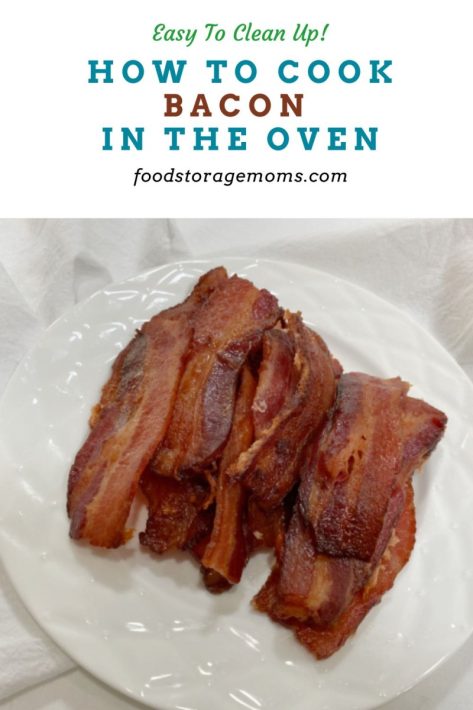
How To Cook Bacon In The Oven
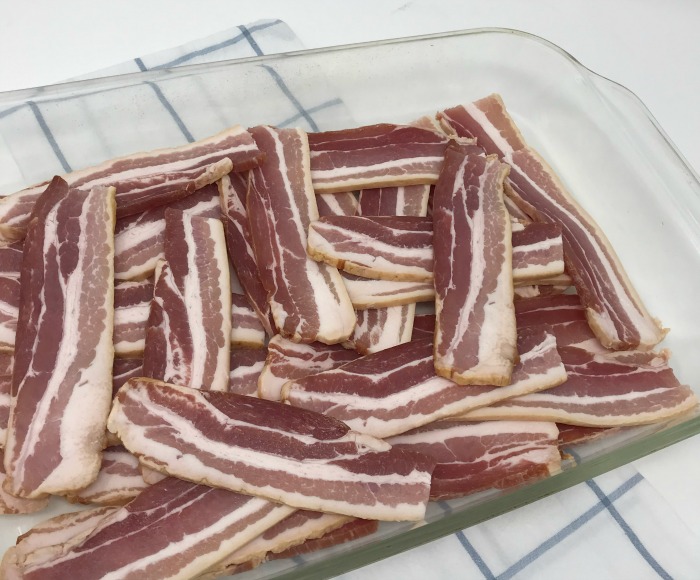
Do you love to go camping? Whenever I think of cooking breakfast outside in the mountains I can almost smell the bacon cooking!
I love bacon and it tastes good on just about everything! Mark and I have bacon, tomato, and lettuce on sandwiches all summer. Thank goodness for my garden! I love egg salad sandwiches with a slice or two of bacon on them too!
This is my new bacon pan, it is called, Fat Daddio’s Anodized Aluminum Sheet Cake Pan, 12 x 18 x 3 Inch. My daughter bought this one, Fat Daddio’s Anodized Aluminum Square Cake Pan, 12 x 12 X 3 Inches It’s the depth that I wanted, 3 inches deep catches all the grease.
What is Bacon:
We all know that bacon comes from a pig. It comes from the side cuts of the pig. It’s cured and smoked before it arrives at the grocery stores. You can get bacon in different widths and thicknesses. You can buy them 1/32 inches thick which give you about 32-35 pieces per pound.
If you buy the 1/16 inch thick you will get 18-20 slices per pound. You can also buy bacon slabs, then slice them to your preference, depending on how thick you like yours. The flavor of the bacon will depend on a few things. Each farmer buys the feed for their pigs from different places, but there’s also how the smoking process is done.
Different breeds of pigs taste a little different too. Of course, some bacon is flavored with maple (my favorite) and other flavors. I like the mesquite-flavored ones as well. Each company will smoke and cure their meat in different ways. I think this is why we all prefer different brands.
We can also buy pre-cooked bacon which is a little more expensive, but sometimes the convenience is worth it. I prefer the thicker slices, so I watch the ads for my favorite brand to go on sale. Then I freeze it, lots of it. Yes, people look at me a little strange with all that bacon in my basket. Costco has my favorite bacon of all.
I can’t wait until my fresh tomatoes start producing this summer. BLT’s here we come!
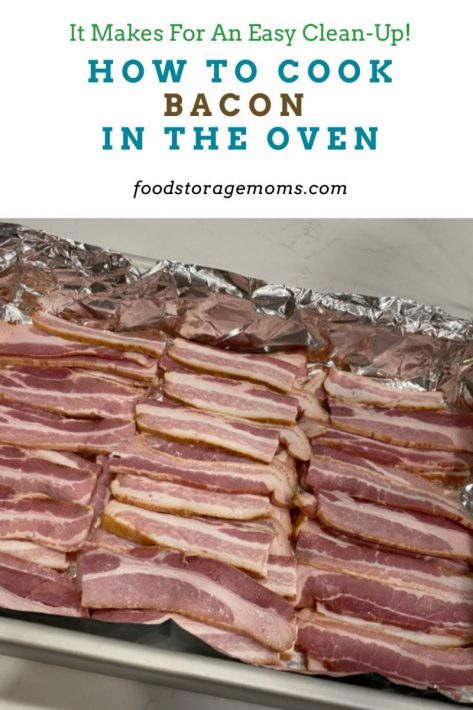
Nitrates:
I have read articles that nitrates that can be found in bacon are bad for your health, then I read articles that say they’re okay. I have read that turkey bacon is worse than regular bacon. In order to make turkey bacon taste like real bacon, they include a bunch of additives. Who can we believe? I’m going to enjoy my bacon, it’s not like I eat it three meals a day. I’ll follow the adage to “eat everything in moderation.” Yes, I’ll go with that one.
How To Cook Bacon In The Oven:
Step One: Get the Pan Ready
Here is the pan I use along with the heavy-duty foil from Costco. I used to use my 9″ x 13″ Pyrex glass casserole dishes as shown in the picture at the top of this post, but they didn’t hold enough and the grease from the bacon got all over the inside of my oven. This pan is much larger, but I particularly like how deep it is (3 inches).
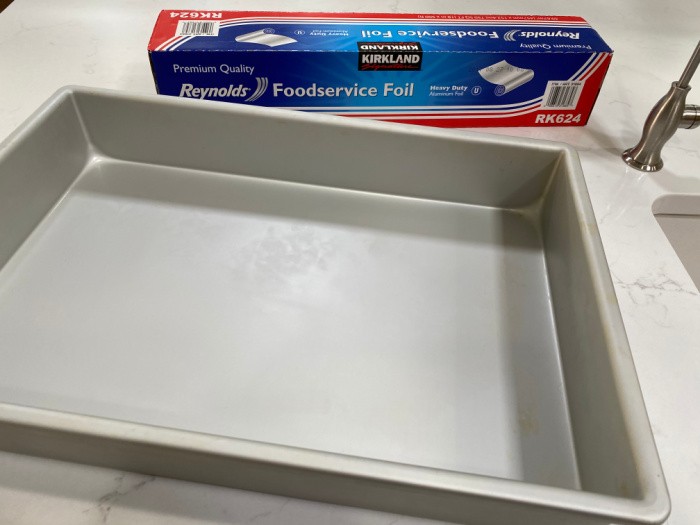
Step Two: Cover the Pan with Foil
I still line the pan with the foil. It saves Mark and me so much time when it comes to cleaning up. I just dump out the grease in a doubled paper cup, fold up the foil and toss it in the garbage can. Sweet! You can see the bacon I’ve grown to love. It’s Costco’s thick-sliced center-cut selection. It seems to come with more actual meat than other brands and their varieties.
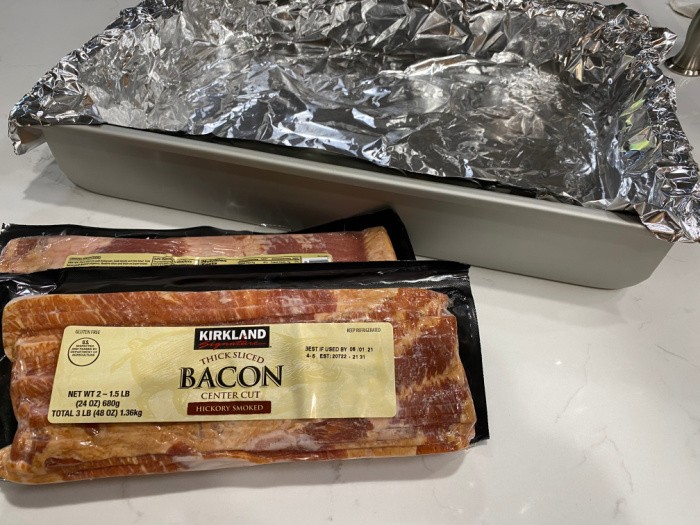
Step Three: Cut the Bacon in Half
The Costco package I buy comes as a two-pack. Note below how I cut each pack in half, making it easier to work with and just the right size when it comes to eating the cooked product. The slices are particularly great when it comes to making my favorite BLT (bacon-lettuce-tomato) sandwiches. They fit on the bread slices just right!
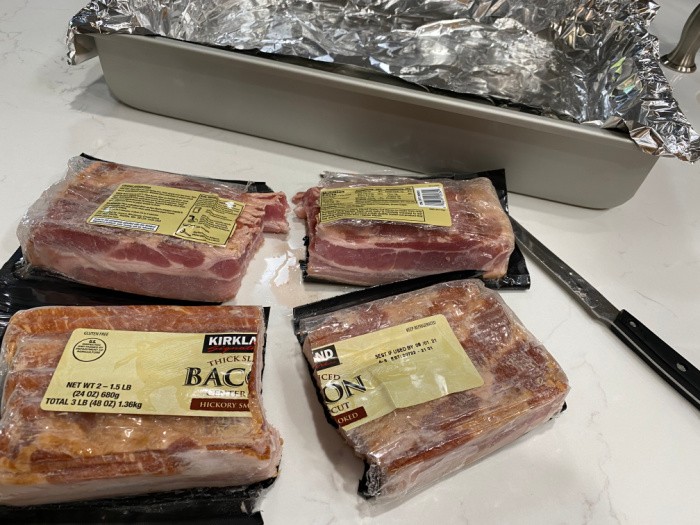
Step Four: Discard the packaging
I remove the packaging and place the sliced packs in the foil-covered pan.
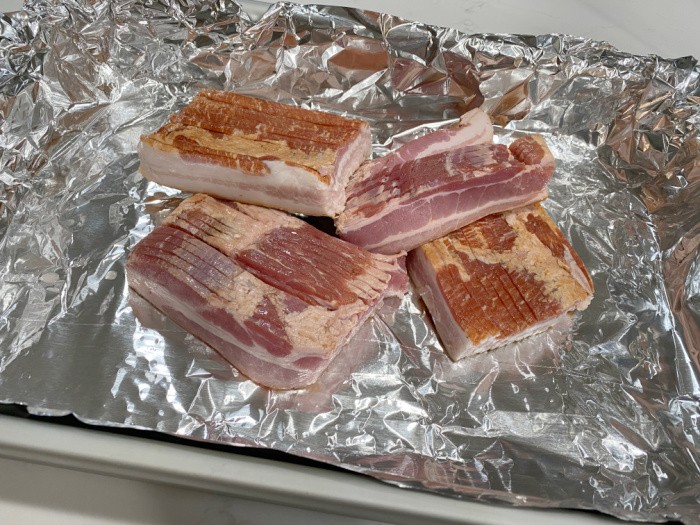
Step Five: Separate the Bacon Slices
The next step is important. I spread the sliced bacon from side to side in the pan. Notice how well they fit with three slices side by side. To get all the bacon in the pan I have to layer them. Don’t worry, the bacon all cooks the same and comes out fully cooked and ready to eat. If you have challenges with your oven cooking evenly, you may have to move the bacon around within the pan part way through the cooking process, and/or, locate it in a new space on the oven rack(s).
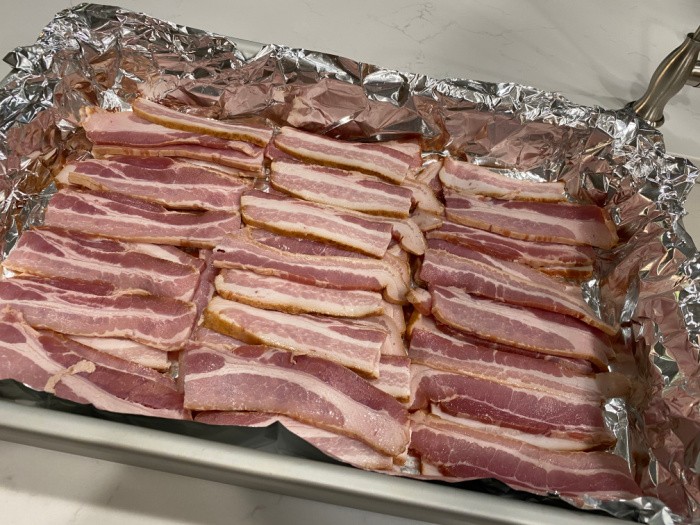
Step Six: Cook until done to your liking
Here is the finished product. I cooked this batch for 45 minutes and then checked it. I decided to cook this batch for an additional 15 minutes just to make sure it was fully cooked. As with so many things we cook in the oven, the cooking time may vary based on the thickness and texture of the item being cooked, the elevation where you live, and the efficiency of your particular oven.
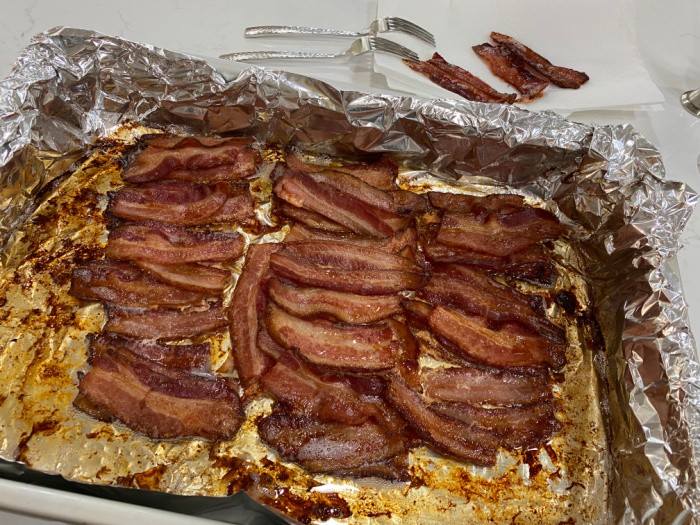
Finished Product
As mentioned above, I love the size and thickness of this Costco bacon once I slice the pack in half. Each slice fits on the plate just right, not to mention how it works on sandwiches. Each slice tends to be consistent in texture, thickness, and length. Note that as I take the bacon out of the pan I place it on some paper towels I’ve spread out on the kitchen counter. The towels absorb the grease and make cleanup that much easier.
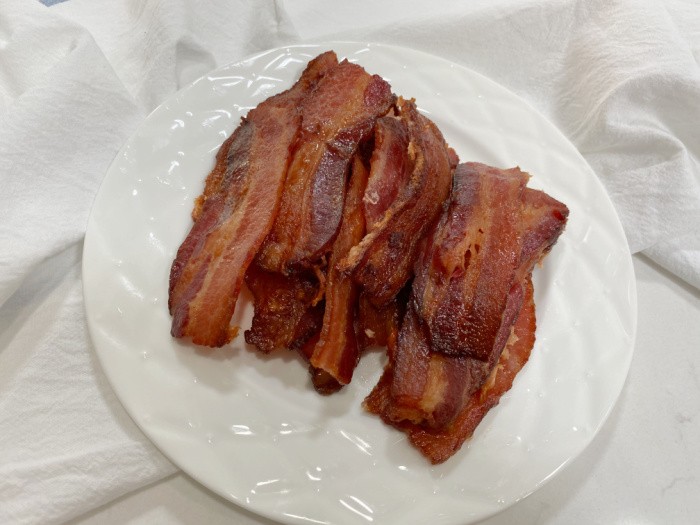
Other Options To Cook Bacon:
1. Just fry it in a pan or skillet on the stovetop (cast iron works great).
2. Cook it in a Dutch oven outside with charcoal – fabulous!
3. Microwave it – Use a paper towel-lined plate. Keep turning the plate, watch it constantly. The paper towels help to make the clean up super easy!
How many ways can we use bacon?
1. Fry some bacon and serve it with eggs and toast.
2. Baked bacon is so easy, as you can see above.
3. Do you crumble bacon in salads?
4. I love it crumbled on top of a pizza.
5. Have you tried it wrapped around water chestnuts? Check out my recipe for this. Water Chestnuts Wrapped In Bacon
6. Cooked and crumbled in omelets.
7. Cooked and crumbled in quiches, with or without a crust.
8. Wrapped around asparagus and baked.
9. Bacon, lettuce, and tomato sandwiches.
10. Serve with scrambled eggs, and avocado.
11. Mark loves it with eggs, sunny-side up, and some wheat toast.
12. Wrapped around a filet mignon, and barbecued!
13. Wrapped around a pizza (saw this one on TV).
14. Put on cheeseburgers (my grandkids’ favorite).
15. Cook it in a Dutch oven-cook it outside-can’t you just smell it?
16. I have a few casseroles that call for some bacon.
17. Bacon in chicken wraps.
18. Cobb salads.
19. Stuffed with cream cheese inside baked mushrooms.
20. Fried rice with bacon.
21. Sliced Brussels sprouts stir-fried with garlic, red pepper flakes, and bacon.
22. Corn Muffins served with bacon and eggs.
23. Spinach salad with bacon (balsamic vinegar).
24. Quesadillas with cooked bacon, cheese, onions, and tortillas (fold in half).
25. Breakfast burritos with lots of salsa.
How To Cook Bacon In The Oven

- 48 ounces raw thick sliced bacon (or the amount you want to bake)
-
Preheat your oven to (375°F) = (190°C) degrees.
-
Line a large pan 12 inches by 18 inches by 3 inches with heavy-duty aluminum foil.
-
Cut the bacon in half, double up the bacon, and layer evenly in the pan.
-
Bake for about one hour, checking for doneness.
-
Drain the bacon on paper towels.
-
Place the bacon in the refrigerator or freeze for later after serving.
Bacon Wrapped Jalapeno Recipe

- 8 ounces cream cheese (softened)
- 1/2 cup Mozzarella or cheddar cheese (shredded)
- 12 jalapeno peppers cut in half lengthwise (remove the seeds very carefully with gloves)
- 12 slices bacon (cut in half)
-
Preheat the oven to (400°F) = (204°C) degrees.
-
Grease a foil-wrapped cookie sheet.
-
Combine the cream cheese with the shredded cheese of your choice and mix until smooth.
-
Scoop the mixture evenly into the jalapeno halves. (After carefully removing the seeds)
-
Wrap the bacon halves around each of the 24 filled jalapenos.
-
Bake on the cookie sheet for 10-15 minutes or until the bacon is crispy.
Can I Cook the Bacon Ahead of Time?
If you have a lot of bacon to cook, or it’s getting close to an expiration date, making the effort to cook the bacon in advance is a great idea. You may want to cook the bacon for a slightly shorter time since it may cook it additionally when you take it from the fridge and reheat it. Cooking it until it is getting crisp is a safer approach. Consider using more than one pan if you need to cook a whole bunch of bacon to save on your time in the kitchen.
If I’ve Cooked the Bacon Ahead of Time, is it Safe to Freeze it?
Feel free to freeze the cooked bacon, it’s pretty simple. I like to put the bacon in freezer bags or air-tight containers. It should be good for up to three months in the freezer. Be sure to take it out of the freezer and put it in your fridge for the defrost process in time for its use in your planned meal.
How Long Can I Keep the Raw Bacon in My Fridge Before I Cook It?
If the bacon is stored in the fridge in its original packing, you should refer to the printed expiration date on the package for guidance. If you’ve opened it before putting it in the fridge, I’d suggest you use it within three to five days to be safe.
Final Word
I hope you enjoyed learning how to cook bacon in the oven today. What is your favorite way to cook bacon? I would love to hear any tips you have!
One of my goals in writing for this blog is to not only help my readers save money as they prepare, but also to point out ways to save time. We’re all busy these days, so having some extra time for things other than meal preparation is a bonus. I’m hoping this post helps in that regard.
Let’s keep cooking from scratch and teaching our kids and grandkids to cook at home. May God Bless this world, Linda
Prepare Your Family For Survival by Linda
Copyright Images: AdobeStock_117384863Moving Moment


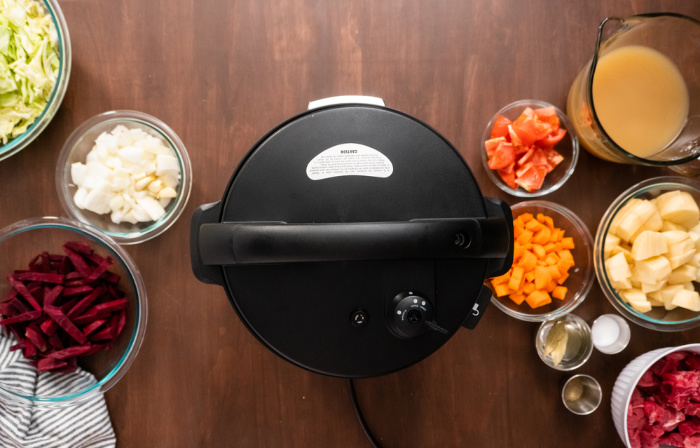
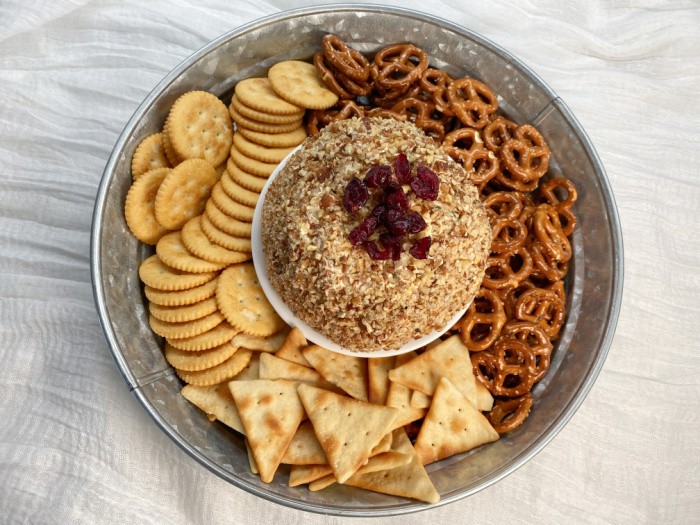

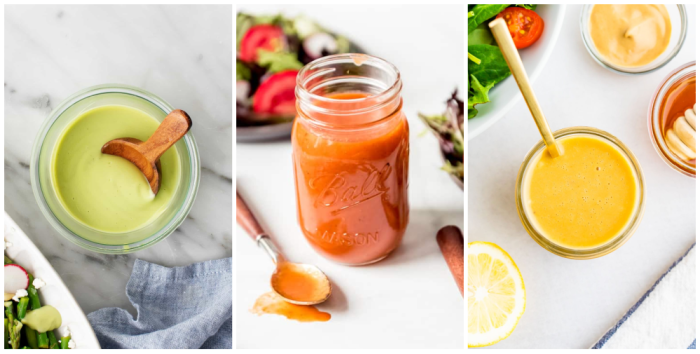
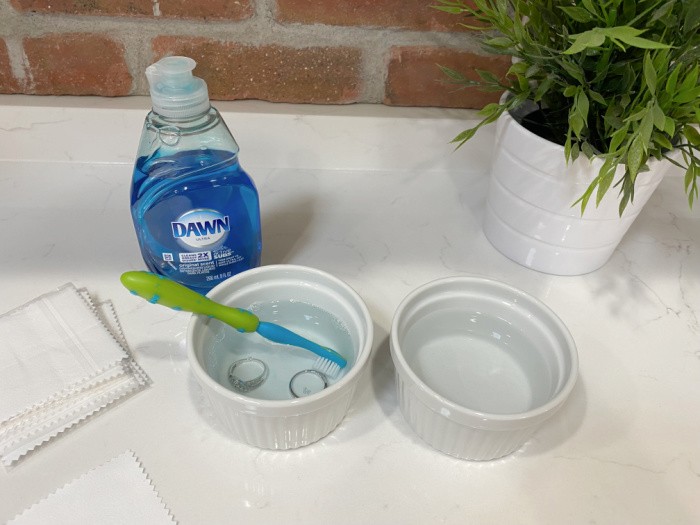
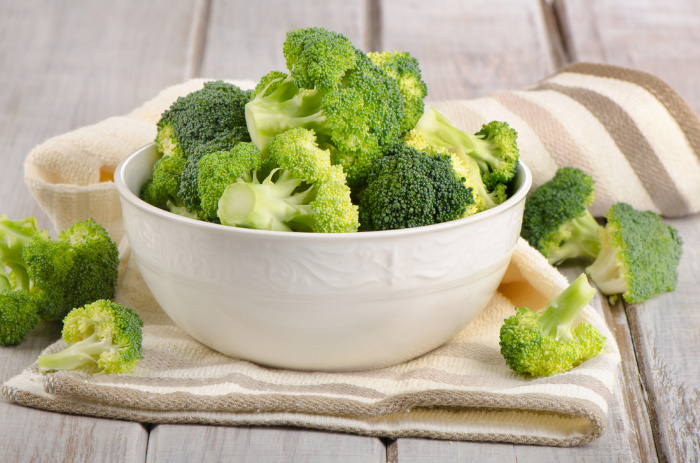


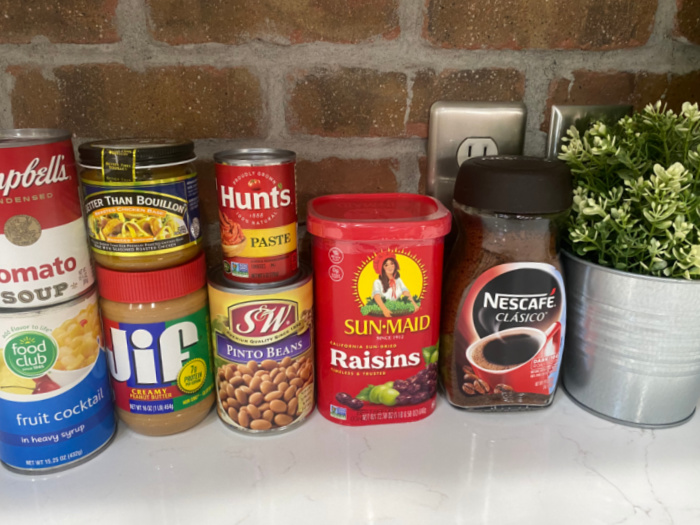


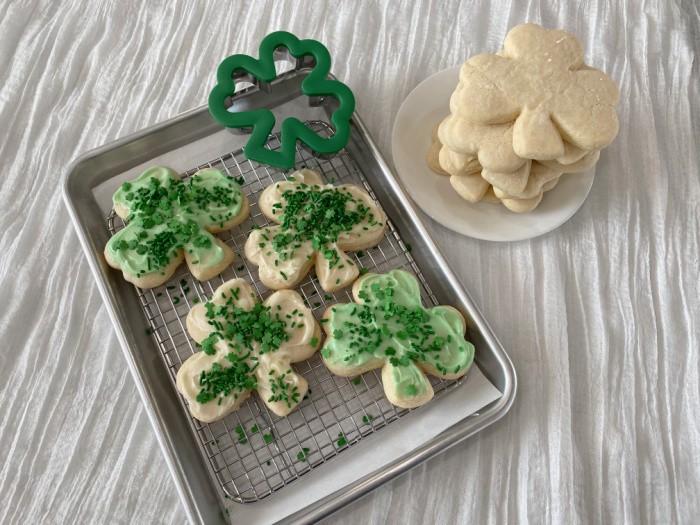
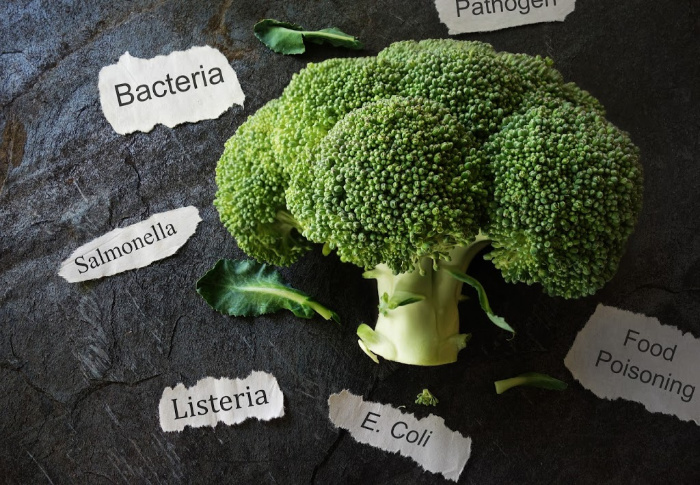
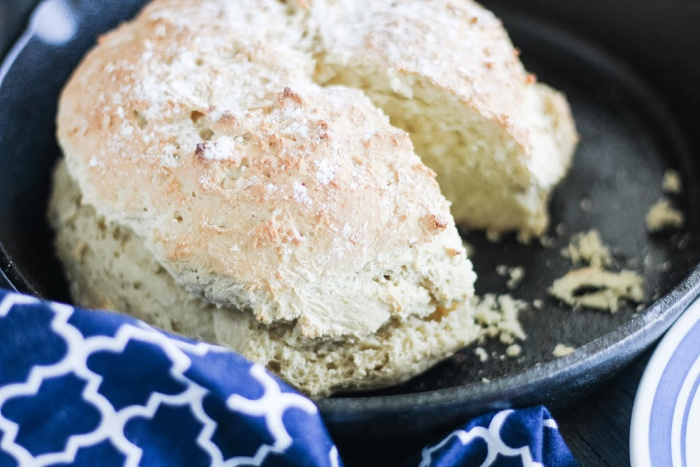
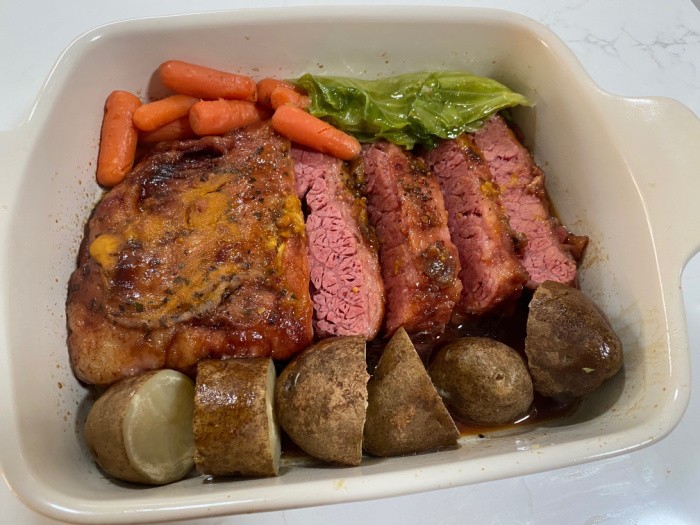
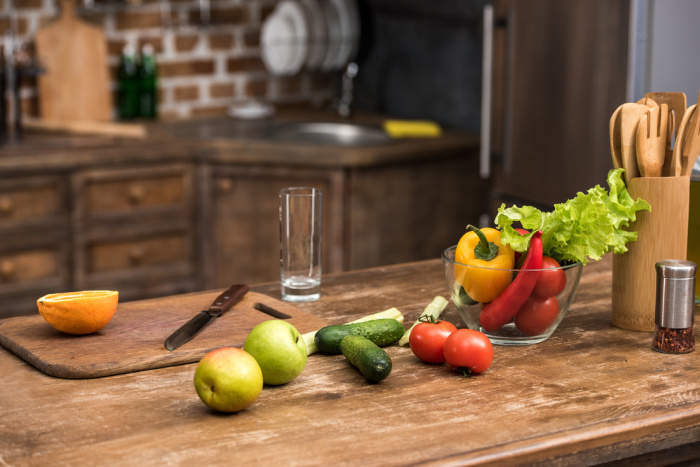



linda ,you throwing out bacon grease ! shame !
jus bought “lecric meat slicer from harbor freight for 29$ !
got tried of hand crank one ,loved it & still do ,works when no “lecricty
now i can SLICE MY HOG JOWL , i buy that & slice it myself easier w/ “lectic or knife
i buy that for seasoning & bacon when i dont want thin ,save breakfast bacon for sammys ”
cheaper than bacon ! they know when i come in store ,i want big unsliced hog jowl !
when hubby was here .he resmoked in smoker ! AWESOME ! TRY IT !
LOVE YA !
Hi Daphne, that’s a great buy for the electric slicer!! I love bargains! I keep some bacon grease but not all of it. I need to go to the butcher to see what a big unsliced hog jowl looks like! Linda
=Hi Linda,
Enjoyed this post. Wanted to share that my sis, who I lost last October, at the age of 93, ALWAYS did her bacon in the oven. She did that LOOOONNNNGGGG before anyone else even thought of it. Don’t know where she learned that trick, but I learned it from her. The only time I cook Bacon in a skillet is when we canped OR when I decide to cook it outside on the patio using a propane stove.
The only thing I do differently is I only put one layer in the pan at a time and when it’s done, add the balance.
I think I’m going to try your method and just put the whole thing in the pan at a time.
Hope you and your family enjoyed a blessed Merry Christmas. Stay well and stay safe.
Suzanne
Hi Suzanne, thank you for your kind words. We moved to northern Utah closer to our kids in October so yes, we had a great Christmas with family close by. Isn’t it wonderful that your sister already knew how to bake bacon and taught you!!??!! I love it! No mess! Stay well, crazy stuff going around right now. Linda
Linda – Thank you sooo much for sharing this way to cook bacon! Omg! Hands down the best and easiest way to cook it! Sooo easy to clean up after. I’ll never go back! Thanks again!❤️
HI Camille, thank you for the 5 stars, my sweet friend. Love hearing you liked it! Linda
Oh my goodness!!!! So easy!!! Thank you for this advice. Now I want to make bacon every morning. The clean up is easy too
Hi Alli, thank you for the 5 stars, my sweet friend. I know, right? Bacon is the best! Linda
I have baked my bacon for years. I use a cookie sheet (with sides) with a the cooling racks (like for cooling cookies) placed inside it. Then I drape the bacon across it. This keeps the bacon out of the grease and allows the bacon to cook faster (it is being cooked on both sides at once). I do keep the grease in a jar in the refrigerator to use for fried rice or potatoes.
FYI the military has baked their bacon for years.
Hi Terry, thank you for the 5 stars, my friend! I did not know the military has baked their bacon for years, thank you for letting me know that!!! Linda
What a great idea! I love the easy cleanup! Thanks for sharing!
Hi Heidi, thank you for the 5 stars, my sweet friend! You are so welcome! Linda
I use to work at a Nursing home and I use to bake Bacon on a full size sheet pan. A commercial sheet pan so that is about 20 pieces or more a time. I also bake sausage too. It is a great way to cook bacon
and sausage especially in a large quantity.
Hi June, wow, I need to cook my sausage in the oven now, thank you for that tip!! Linda
Hi Linda,
What about using a bacon press to prevent curling?
HI Sam, thank you for the 5 stars, my friend. I think that would work if we can find one with a handle that can go in the oven. I glanced through Amazon and most have a wooden handle and no mention of “can be used in your oven”. This would work on the BBQ but not sure if the lid is shut. I found a metal one with a metal handle but here again, no mention of being able to use it in the oven. Wow, we need one! Great idea! Linda
Linda,
I’ve been baking bacon for years. I put it on a rack so the grease doesn’t stay with the meat. I’ve learned that in addition to lining the pan with aluminum foil I can control the splatter by laying a sheet of foil over the bacon. I remove that top sheet a couple of minutes before the bacon is fully cooked so it can crisp up. I like mine crumbly crisp.
I strain the grease into a mason jar which goes into the fridge, and use it anytime I fry burgers or eggs. I also use it like I would Crisco to grease the pan I make cornbread in. Everything really IS better with bacon.
Hi Ray, thank you for the 5 stars, my friend. Why didn’t I think of covering the bacon with foil, oh my gosh! I will from now on, thank you for that tip and the rack! You are so right everything is better with a little bacon or bacon grease! Linda
Love LOVE bacon!!. I did a bacon wrapped boneless pork tenderloin in the oven. The hubs said it was sooo good. I took the pork tenderloin I had and wrapped it in bacon, I put it in a med sized flat baking dish (think 9×13 but a bit smaller) , spray pan with some PAM, cover with foil and put it in a preheated 325 deg oven for 2 hours, yes for 2 hours. Uncover after 2 hours and roast 30 – 60 more minutes till bacon browns. Let rest for about 15-20 minutes , loosely covered, then serve. I cooked the roast one night and reheated it the oven the next night as hubs wanted of all things chicken strips for dinner THAT night, (First REAL meal he had since his surgery). So I had to hold it for the next night. We had Yams, green beans with it for dinner the next night. He’s doing fine, PT is getting easier for him, at least he’s eating better now.
Hi Kathy, I love bacon as well!!! Now, I need to make that tenderloin recipe you described! YUMMY! I can almost smell it from here! LOL! I’m glad to hear your hubby is on the mend after his surgery!! Good news! I’m glad his PT is getting better, it’s not fun in the beginning, that’s for sure. Linda
Thank you and the hubs says thank you as well. It’s going so slowly right now. But he keeps plugging along. The therapist had added another day to his schedule so now he’ll go 3 days a week instead of the two he does now. She thinks that may help “loosen” up his leg. He says he wakes up fine but when he’s done with a meal at the table or sitting in a chair or on the lounge side of the couch, it’s like his knee/leg stiffens up and he’s back trying to get it to bend so he doesn’t sit for long periods of time because he’s constantly moving. Meanwhile I been doing my therapy, messed up my hip a couple of years ago, just didn’t realize that my hip had been affected as well because they(docs) were concentrating on my tailbone and spine when I took a very bad tumble. MY therapist says I’m coming along really well. At least I don’t look like a some what tipsy sailor on dry land any more HEE HEE. I walked with a bit of a lurch due to my hip now I’m almost walking like I used to.Hope all is well with you and Mark. Starting to get the seed catalogues in, YIPPEE!
Hi Kathy, it’s interesting how surgery affects all of us differently. My BIL had one knee replacement like 7 weeks ago and is struggling. He has a bruise down the side of his leg from his hip to his ankles. I didn’t have any bruising. But after the first set of pain pills ran out with my knee replacements, I used Aleve for 9 months. I’m glad I did them 2 weeks apart because I may have not gone back for the other knee!! LOL! Messing up your hip is not good. I tell you, getting older is harder than I had pictured. That’s probably a good thing! LOL! The seed catalogs are the best! Linda
I know,Linda. Getting old sucks. Hubs first one went well and he was up and walking very well withing a few weeks, this one it’s tough. Could be he’s 2 years older and that’s hindering the healing. We’re going to the doc’s on Monday.So I hope everything will go well. Since he’ll be doing 3 days of PT starting next week, maybe that will help. Hub’s bruising wasn’t too bad this time, just where they had the tourniquet and the strap on his ankle and around the knee itself . One good thing, the swelling has gone down and he’s not using the ice machine as much. He’s been doing the Tylenol as prescribed and only using the “oxy” after his PT sessions as usually the pain isn’t too bad during the days he’s not going to PT. We’ll see what the doc has to say on Monday. Thanks
HI Kathy, he’s lucky he has the ice machine. They came out with those after mine were done. I would have loved it. I had a “bike” deal on my bed for 3 months to keep my knee moving. I used it 24/7 to help with the pain. I’ve heard they don’t use them anymore which is sad. I went to PT as well but that “bicycle” helped me so much. I hope he gets better soon. Linda
Linda;
When I have bacon fat left I place it i n a jar I keep in my fridge. When I am making sausage gravy I need a little extra fat because the sausage I buy is so lean (It’s the only sausage I can eat). The bacon fat gives it a little more zing to the gravy and isn’t so hard to make. I got this idea from my husbands grandmother who never bought Crisco. She would take butter she churned (Oh to have the milk to churn butter) and add a hand scoop of bacon fat and make her breads with. Never before or after Ma died have I had biscuits like she made so lite and so delicious.
Hi Jackie, thank you for the 5 stars, my sweet friend! Oh, I love this idea to add bacon grease to the lean sausage, great tip!! Now I want to try and make biscuits with bacon grease, love this tip! Linda
When cooking bacon in the oven we cover it with foil for the first 20 minutes. Then we drain the grease for later use. This would make the oven cleaning easier for Mark.
Hi Chris, thank you for the 5 stars, my sweet friend. This is so funny, Mark does clean the oven, I love this! I am covering my bacon going forward! Linda
As a prepper, knowing how to accomplish anything using different tools and methods is always of interest to me.
Besides that, bacon tastes so good. 🙂
Hi Frank, I totally agree, bacon tastes so good however we decide to cook it!!! Linda